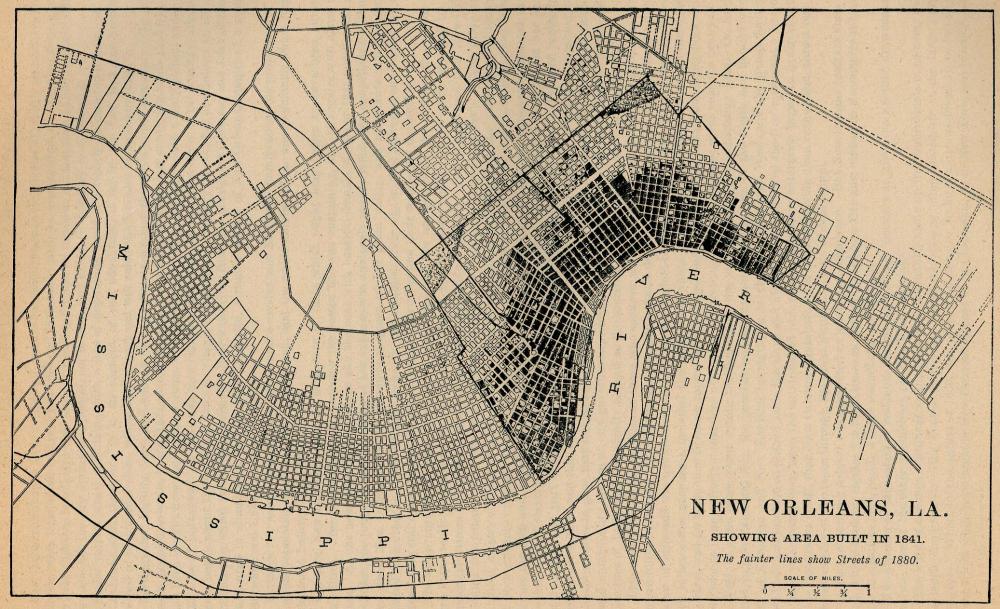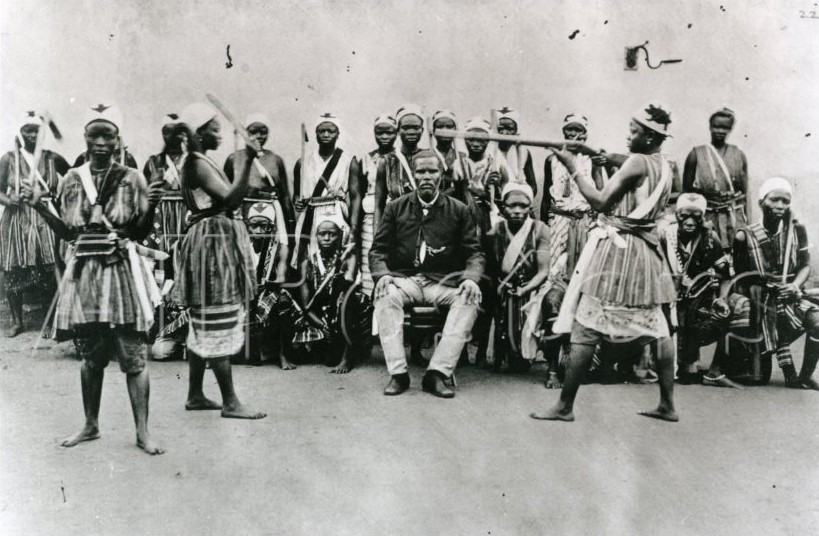Eulalie de Mandeville was born in 1774 in New Orleans, Louisiana, from the alliance between the prosperous French nobleman, Pierre Philippe Mandeville de Marigny, and one of his slaves, Marie-Jeanne. Eulalie was freed by her paternal grandparents in 1779 and was raised by them. As a member of a wealthy family within the Louisiana Creole community, she held a high status as a free woman of color.
In the early 1790s, her father arranged Eulalie’s union with Eugene Macarty, member of a locally prominent military family. Macarty’s first cousin, Augustine Macarty, was Mayor of New Orleans from 1815 to 1820. Eugene Macarty being a White Creole and de Mandeville a free woman of color, could not legally marry: their partnership was instead based on the Creole custom of plaçage in which white men and colored women of the French and Spanish Northern American colonies could live together as a couple even if they were not legally recognized as such. This tradition enabled free women of color to acquire upward social mobility while it provided white Creole males “virtual” wives as the colonial white female population was extremely low.
Their union revealed itself to be durable: in addition to the five children they had, Eugene and Eulalie were successful business partners with the inheritance from Eulalie de Mandeville’s grandparents. Indeed by 1799, at her paternal grandmother’s death, she was given most of the de Mandeville property including a plantation with several slaves and about seventy head of cattle. These properties and the financial assets that came with them enabled her to establish multiple businesses in New Orleans, including a successful dairy and profitable retail businesses in the city.
But after Eugene Macarty’s death on October 27, 1845, Eulalie de Mandeville was accused by his family of diverting her late husband’s fortune from them for her own benefit and that of one of their children. The basis of their argument rested upon the fact that the plaçage nature of their relationship was only conventional and not legally binding. A New Orleans court however decided otherwise. On June 26, 1847, after a nine months trial, the judge ruled that the Macarty family had no right to Eulalie de Mandeville’s fortune as its development did not depend entirely on her husband’s actions and personal wealth but resulted instead in the shared effort and common work of both of them.
The ruling that legitimized and protected Eulalie de Mandeville’s fortune, however, came about a year before her death at the age of seventy-four in 1848. Nonetheless it protected the rights and assets of other free women of color in similar relationships with white men in antebellum New Orleans.




















